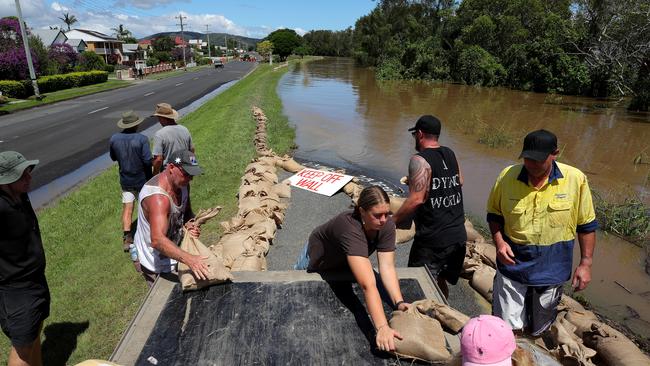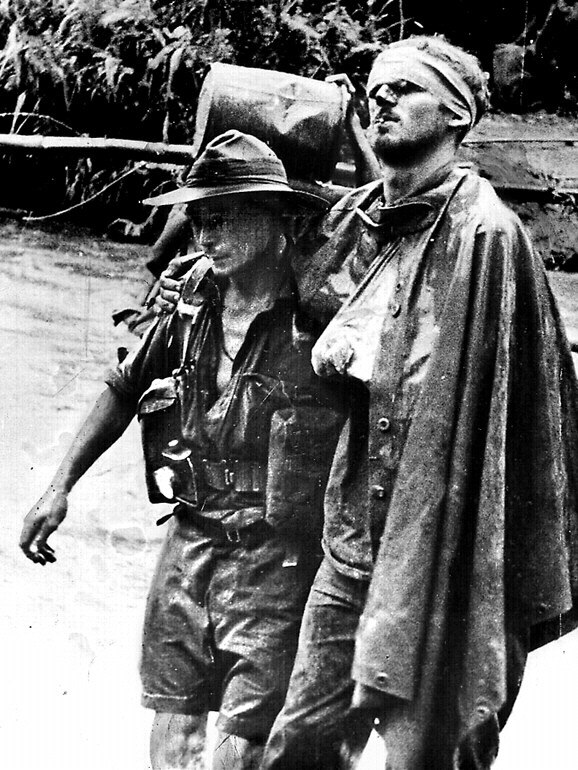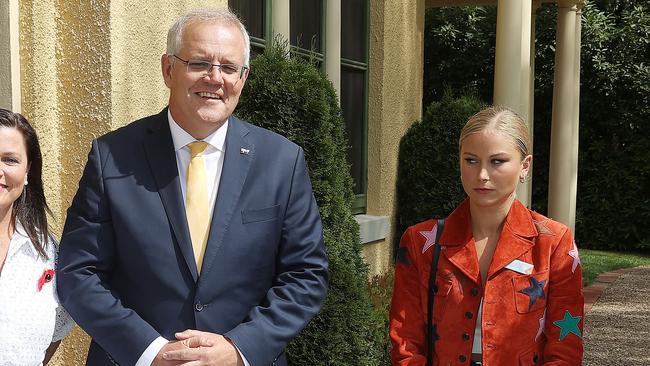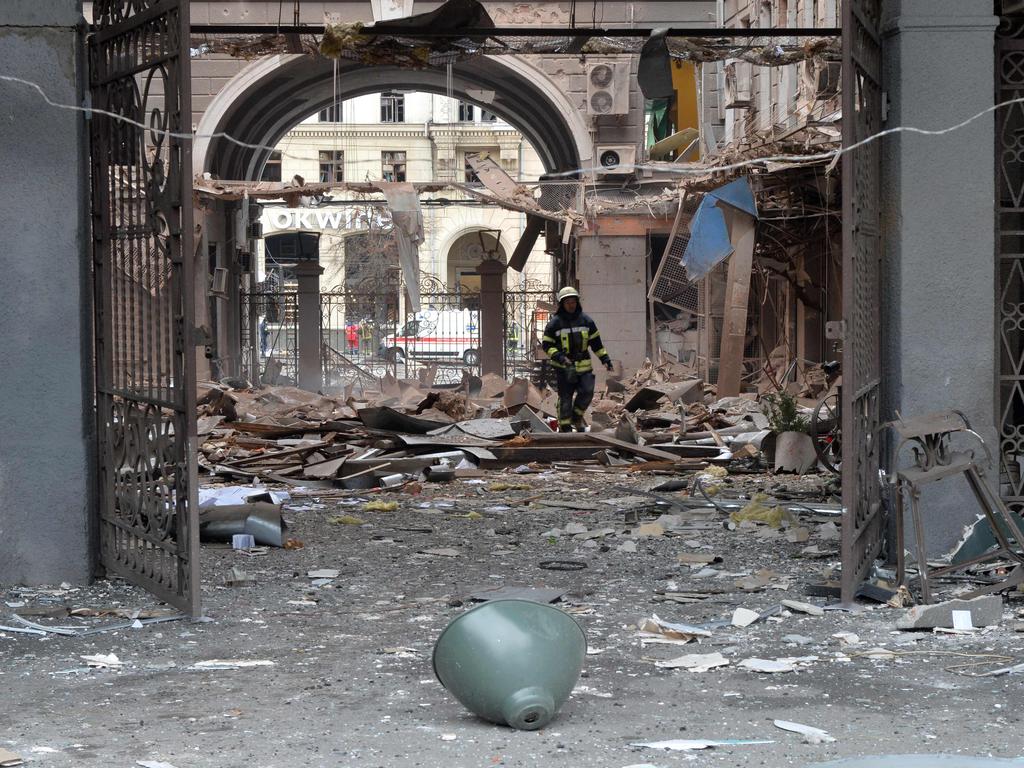Would we fight like Ukraine? All the evidence indicates no

People around the world must observe the heroic resistance of Ukrainians to Russian brutality with a similar national doubt. Would my country be so determined, so damned brave?
Of course, we Australians resort to jingoistic patriotism, and imagine swarms of bronzed Diggers joined by legions of tanned surfers confronting the enemy. But really?
There is no doubt Australians rise to heroism in the face of natural disaster, as we are now doing in the face of crippling floods. But these disasters are physical, personal, local, and immediate.
Fighting an overwhelming enemy in our own backyard in defence of that great abstraction “The Nation”, is different. Would we be up to up to it?
These thoughts arise naturally with our changed strategic position. Vladimir Putin has shown us what a mad, distant dictator can do. Xi Jinping is a quite sane, local dictator. He could do much worse, and potentially to Australia, indirectly or directly.
These new threats come against the confronting reality of Australia’s botched defence preparations. We have underspent on the military for years.
Australia spends just 2.1 per cent of GDP on the military, compared to 3.7 per cent by the US, and Russia’s 4.4 per cent. Admittedly, China spends only 1.7 per cent.
In terms of GDP devoted to military, we are up there with Donald Trump’s NATO defence bludgers, like Britain and France, though not as bad as the notorious Germany and Italy.
This would not be so bad if our defence purchases had been inspired. But we have submarines that go clunk, due to be replaced around 2552; warships prone to propulsion problems; and some jets that spend almost as much time being repaired as in the air. All exist in such small numbers they would be less a threat to Chinese prowess, than an insult.
Yet the deterioration in our current strategic situation masks our historic, enduring vulnerability. We are a vast continental nation, still of largely European culture, adjoining a densely populated, politically unstable Asia. We have 25 million people spread across 76 million square kilometres.
Under current arrangements, how would we defend it?

Morally, are we even entitled to? Millions of our Asian neighbours starve, yet we have not exploited vast opportunities to grow and sell more food, especially rice. As, Sister Marie Therese irritatingly would ask, “What would Jesus say?”
As an Australian nationalist, I am not proposing we compromise our sovereignty. I merely observe that the case for it may be less compelling from a distance.
But far more worrying than ships or submarines is the fibre of our population. Years ago, we would have been confident that Australians would rise to the awful challenge of defending their country? But now?
Our reaction to Covid is deeply worrying. Putting aside the absolute imperatives of protecting the aged and other vulnerable populations, our overall response has been as a nation of bed wetters.
We gladly surrendered our economies, and freedom of movement. Western Australia and Queensland effectively seceded for months.
Worst of all, in places like Victoria, we calmly conceded most of our civil liberties to a health dictatorship. Is this the Dunkirk spirit, or the Kokoda Track?
Nationally, we seem as divided as the average Balkan republic. We disagree violently on every topic from climate change to sexuality. Worse, there is no civil debate, just nasty enthusiasts shouting past each other. Is this a country that could meet attack, united and resolute?
We are, like many Western nations, a trivial country. We routinely debase discussion of even the most important controversies. Again, climate change becomes a swapping of insults around Tim “Rainstorm” Flannery and whoever is unlucky enough to be the incumbent environment minister.
Grave sexual harassment descends into the absolutist accusations of a #MeToo movement copied directly from America, or the propriety of Grace Tames’ Goanna Glance at the Prime Minister. (Look one in its sideways eye, and you will see what I mean).

We virtue signal like brightly coloured birds in search of a mate, but do not actually practice virtue. We love the environment, but tweet, not protect. The right is as bad as the left. It loves Western Civilisation, but does nothing effective to save it in universities or schools, and appoints those who hate it to teach it.
What use are virtue displays in a genuine national crisis?
In sum, we are not the popularly conceived self-confident mass of citizens, with the courage of our convictions, united in our willingness to sacrifice for our country. We are a self-indulgent, shallow rabble.
So what do we do, when our sleepy corner of the world becomes genuinely dangerous?
A modest start would be civics education classes that taught the real advantages of living in a modern democracy – with all its faults and challenges – rather than perennially sneering at its suggested shortcomings.
But this is not nearly enough. We need to ingrain in our population a practical habit and willingness to defend their democracy. Countries like Switzerland have compulsory military service. Every male citizen serves from the age of 21 to 30. Every Swiss has a personal stake in Switzerland.
We should develop something similar, adapted to Australian values. There should be a true requirement of national “service”. Anyone not wanting military training could work throughout the community on valuable projects.
This would have two results. First, there would be a large mass of citizenry with basic military training, who quickly could be developed further in time of need. Second, emergent Australians would understand that citizenship is a privilege to be honoured, not just a right.
What of people like me, too old to serve but benefiting from the service of younger Australians? We would pay for it.
Emeritus professor Greg Craven is former vice-chancellor of the Australian Catholic University.





Have you ever had the sinking feeling your team just might not be the best in the world? Like watching the flailing Carlton Blues, or seeing the Wallabies haka-ed into the mud by the All Blacks?